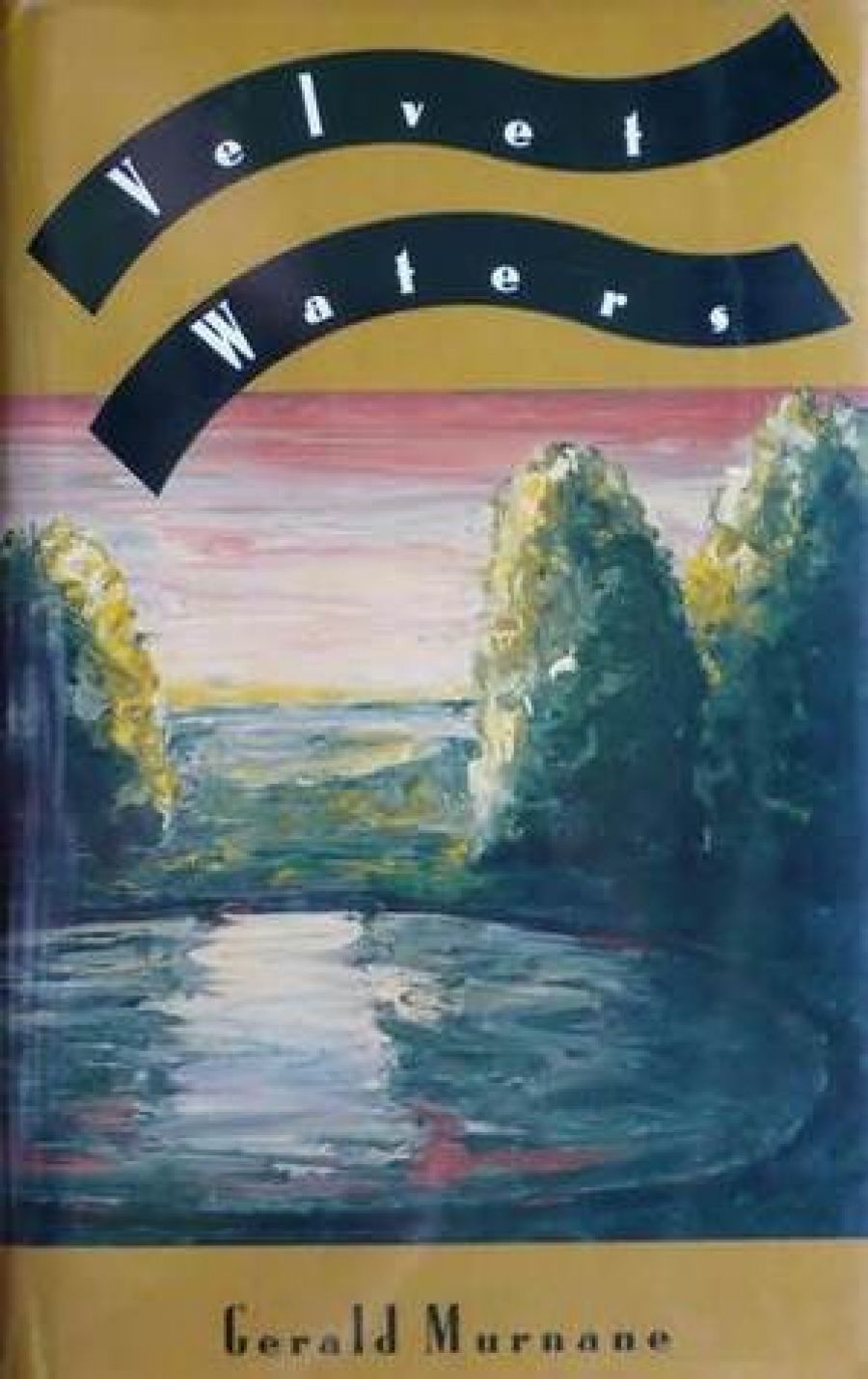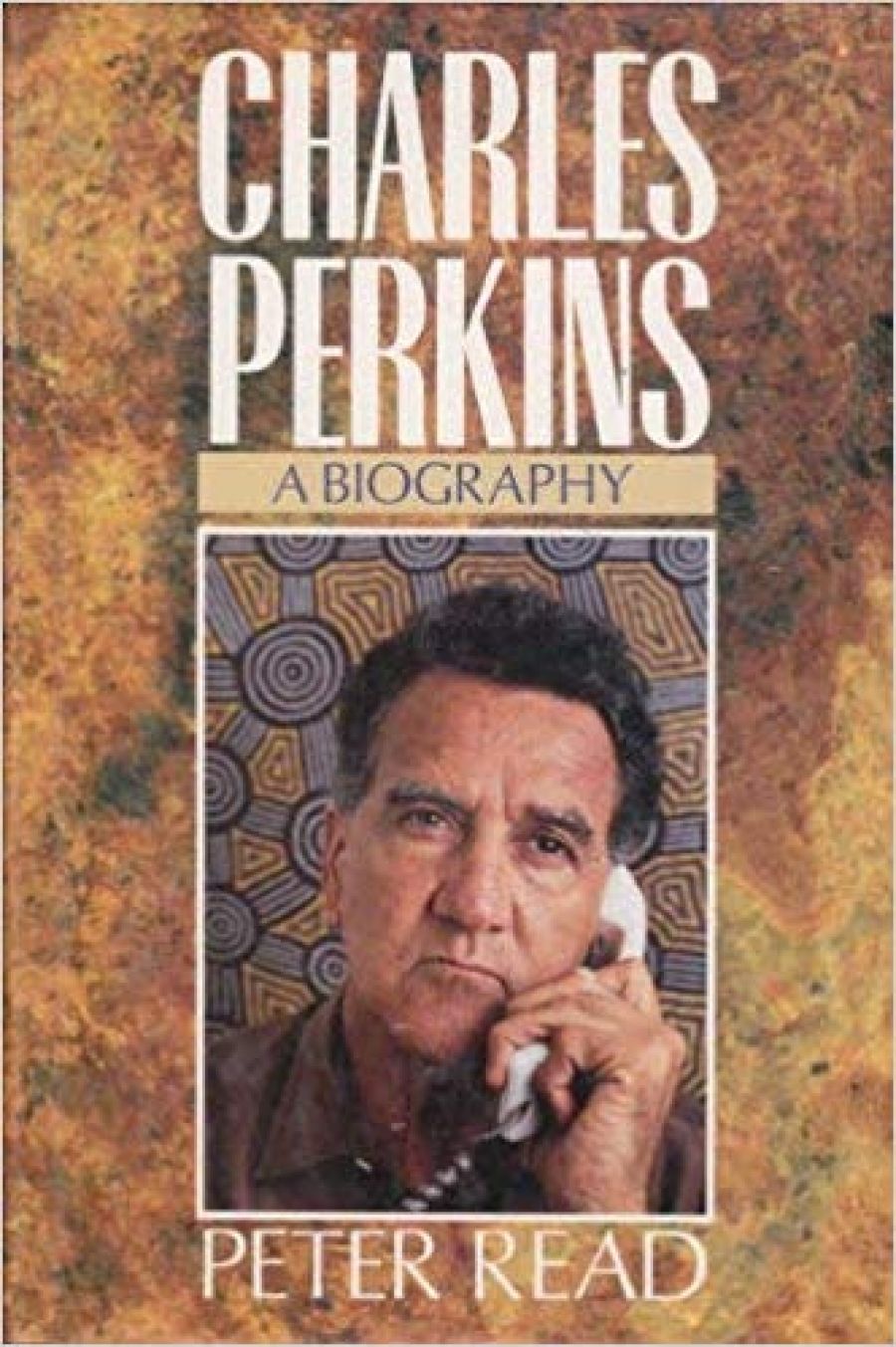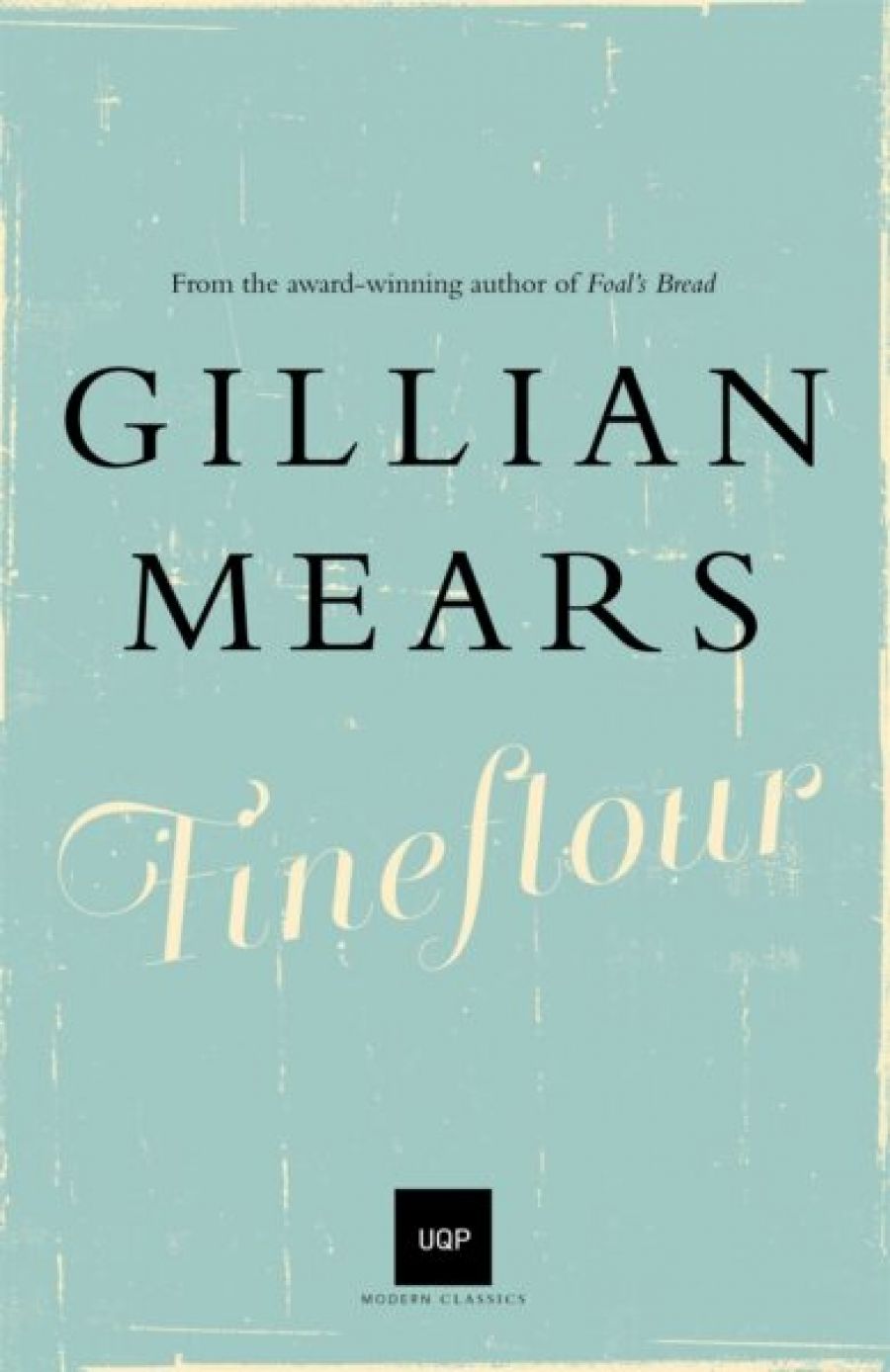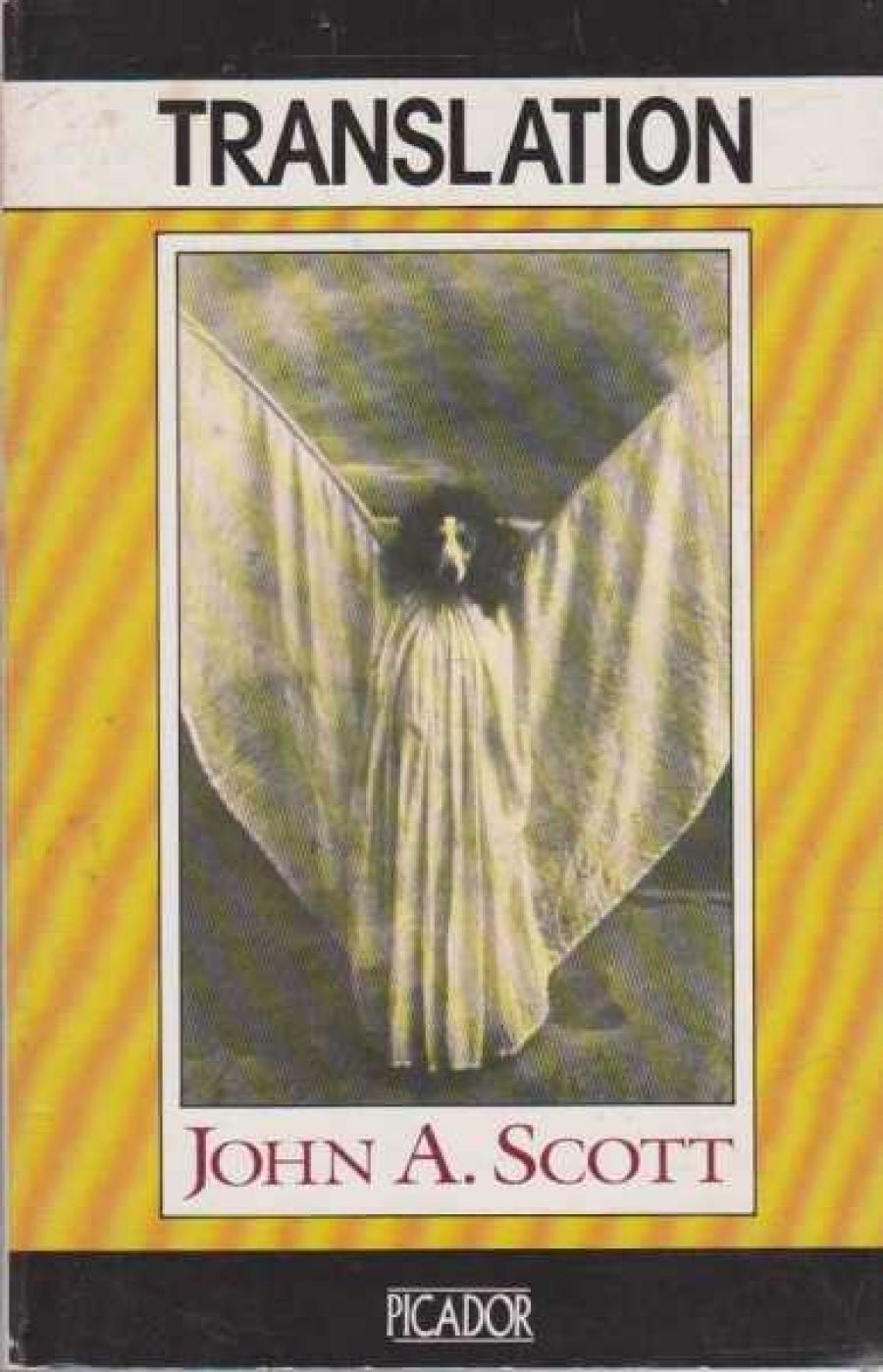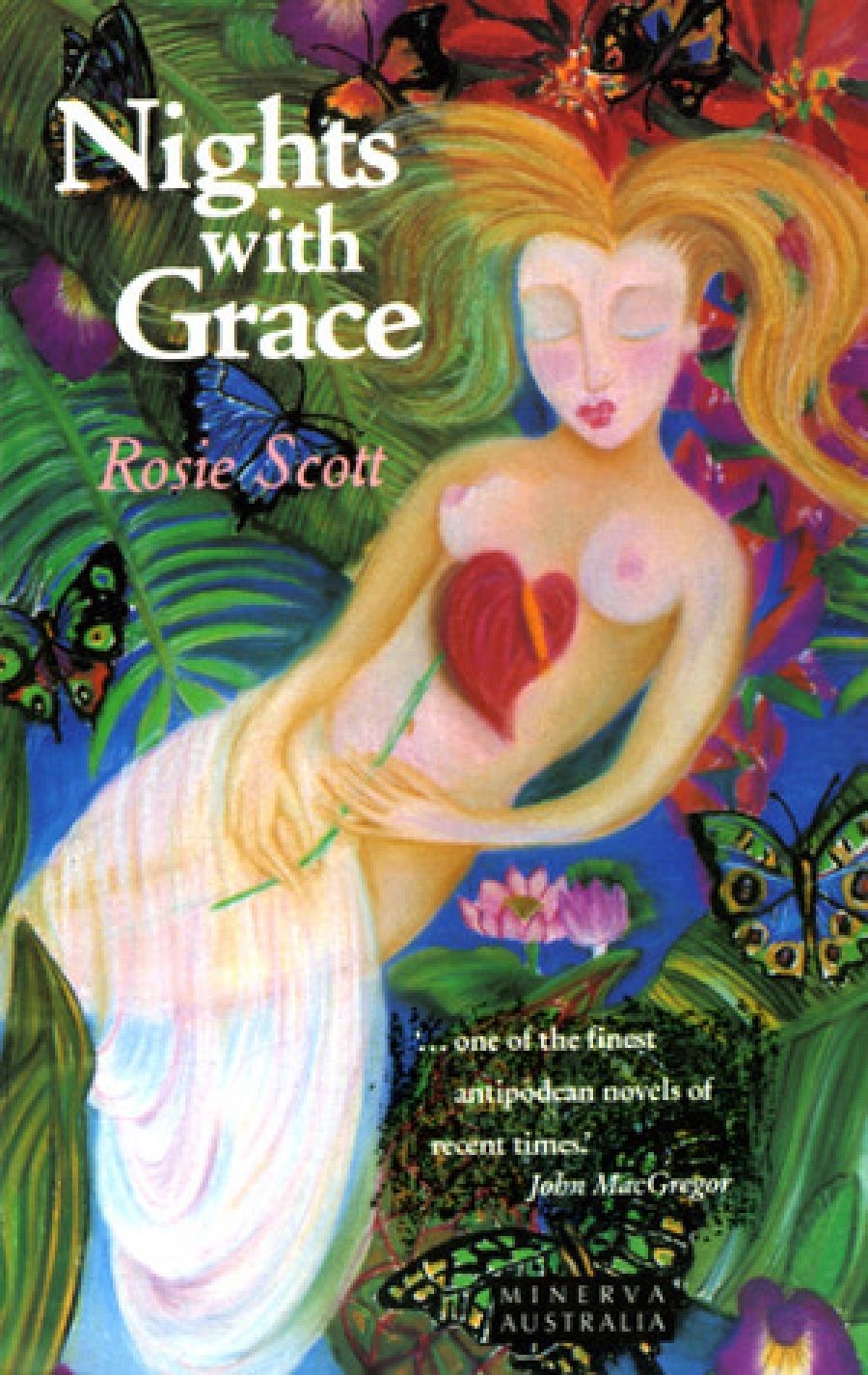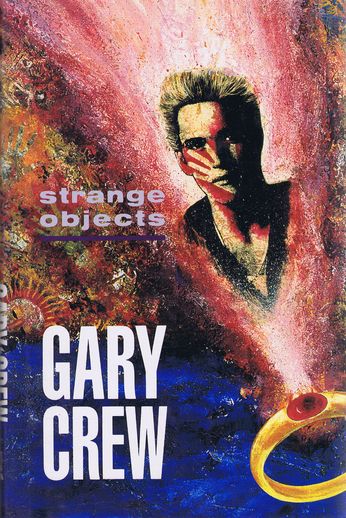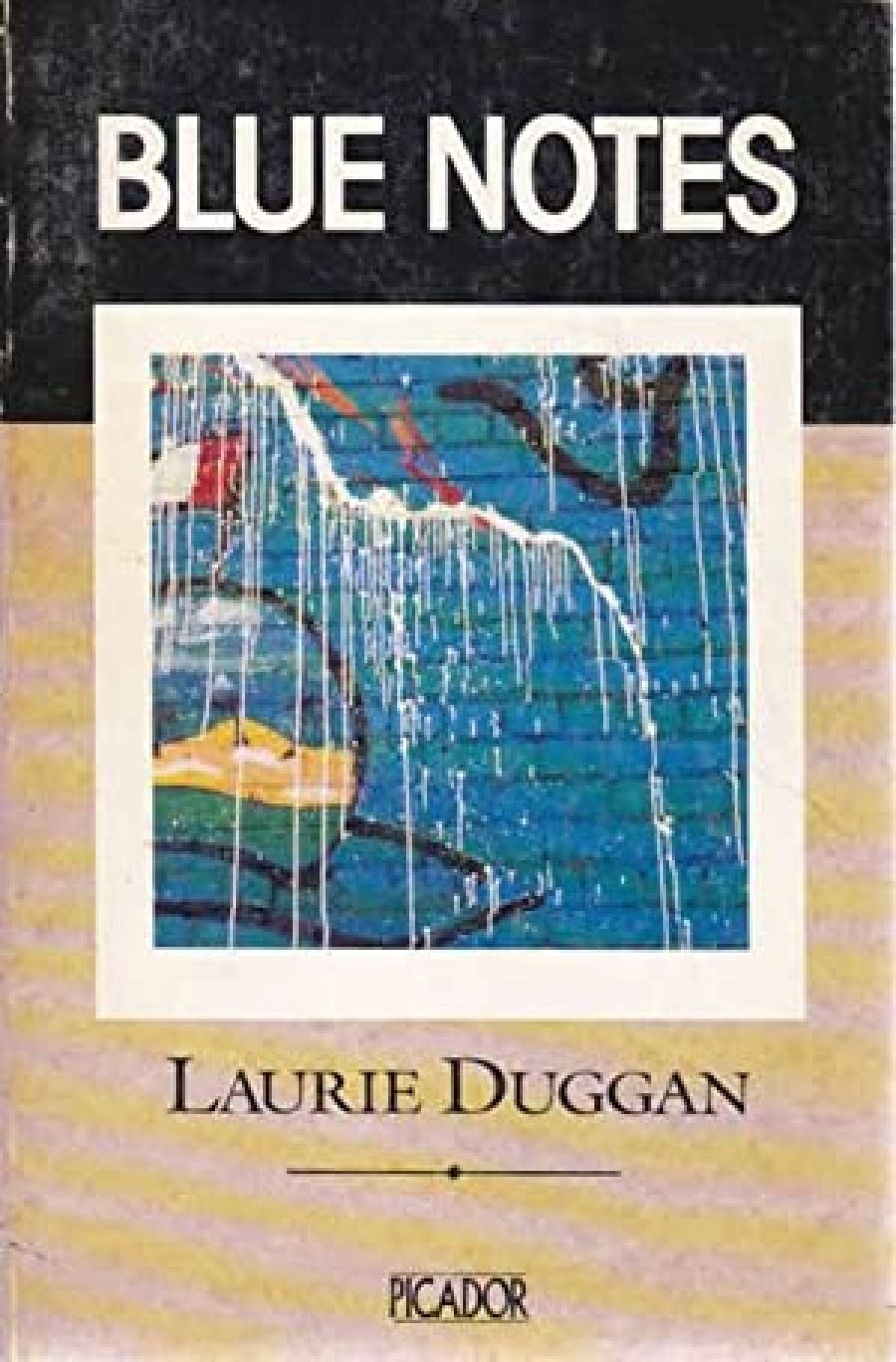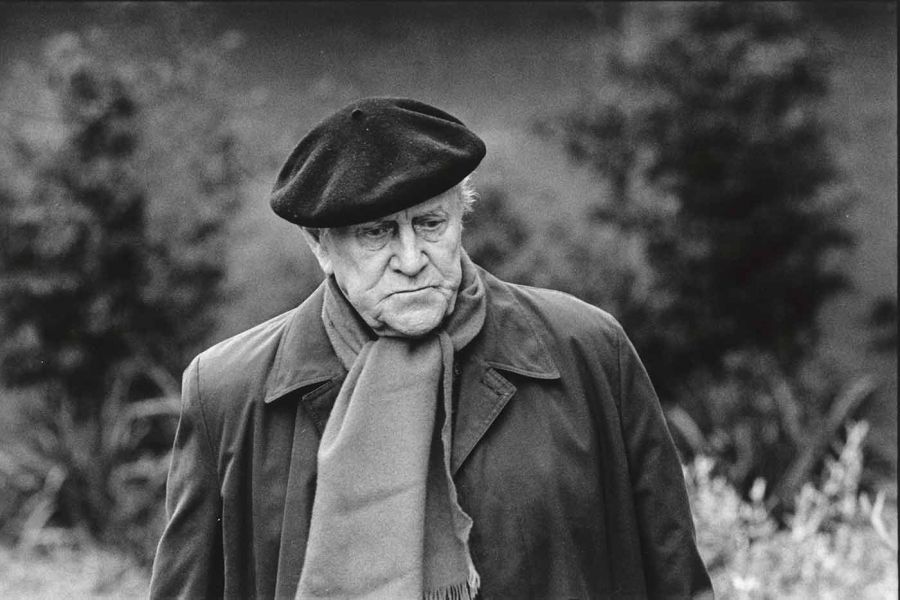The campaign to save Nutcote, the home of children’s author, May Gibbs, has reminded Nadia Wheatley of her childhood reading. In this essay in the Australian Voices series sponsored by Telecom Australia, she looks at the role played by Australian authors in shaping the way we see ourselves and our environment. Robin redbreasts and muffins may be all very well, but that’s not the whole story if you’re growing up in the shadow of a gum.
We are having a Sunday picnic. It is not a cosmopolitan affair, with pâté and brie and champagne, nor even a dinky-di one, with sausages and sauce and tinnies. Simply an impromptu, let’s-get-out-of-thehouse event: a jar of peanut butter, a jar of honey, a tub of marge, half a loaf of Friday’s bread and a packet of jubes.
We’re not even where we meant to be, for the plan was to drive to the end of the Glen Davis valley and explore the old shale oil factory. But it’s flood-time, and the road was cut off, so we headed down a side road named Glen Alice 8, and after quite a long time of the voices in the back seat saying ‘Are we nearly there?’, and the voices in the front seat saying ‘We don’t know where there is’, we arrived at a corner with an old hall, an old church, a weedy graveyard, a public lavatory and [the following is a message from this essay’s sponsors] a nice new telephone booth. This would have to do, we decided, though it looked boring and bleak. Cut our losses, just make the girls a quick sandwich, then head back to Capertee for a cupertee.
But you can’t drive for two hours and just eat a peanut butter sandwich and go to the toilet. (Yes, yes, we could have made a phone call; but you don’t drive two hours from a perfectly good phone at home to do that, either.) And so we made a quick reconnaissance of the little pressed-tin church (Anglican every second week, Uniting every fourth: or was it the other way round?); had a squiz at the graveyard (a family called Jamison seemed to have been the local nobs); and then we saw it. A classic river-valley river, with just-blooming wattle and newly tipped gums, and at the bend a little beach of pure white sand, where our footprints are the first marks upon its flood-cleanness as we arrive and start our picnic.
Now the billy has boiled and we’re having a cuppa in the post-sandwich stillness, and one of the three girls – they are aged eleven to thirteen, and go to different schools in the inner city – says, ‘I know this sounds stupid, but whenever I’m in the bush I think of Snugglepot and Cuddlepie’. She looks embarrassed at this double-revelation of childishness and bush-love, for she is tall for her age – far taller than I am – and wears all the brand-names, and has a different hairdo every hour, and is as interested as any of her peer group in fashion, romance, and Madonna. Indeed, all the way in the car, or at least till the last half-hour of hunger, the girls had read Dolly magazines, oblivious to the instructions from the front seat to ‘Look at the wattle! Oh, look at the kangaroo!’
Ignoring the embarrassment – what are kids for if not to provide a free source of market research? – I start the questions, for only a week ago I gave a talk to some Wollongong school librarians about how books such as Snugglepot and Cuddlepie had shaped my sense of cultural identity as I grew up in the fifties. I’d more or less assumed that my generation had been the last to be so influenced by the Australian classics; indeed, I’d argued that even though such stuff was now old hat, we had to honour its place in the development of our cultural history, and what better way than by donating money to preserve May Gibbs’s home Nutcote? etc. etc. But here, now, before my eyes, on this Sunday at Glen Alice, there is a live contemporary young person making, in a simple sentence, the equation that I’d laboured before the librarians: for many of us bush equals Gibbs and Gibbs equals bush, because Gibbs first made the bush known to us.
‘When did you stop reading Snugglepot and Cuddlepie?’ I ask.
More embarrassment. Small voice. ‘I, um, still sometimes read it.’
‘So do I …’ ‘Me too …’ The other two ease the situation, and suddenly it is like a coming-out session.
‘And Blinky Bill,’ someone volunteers.
‘And Dot and the Kangaroo …’
‘And The Magic Pudding …’
Probe I was taught when I used to walk the streets for McNair Anderson: ‘Why do you like Snugglepot and Cuddlepie?’ I ask.
‘I dunno. It’s just a good story.’
‘The drawings are so good.’
‘Yeah!’
Me: ‘In what way are they good?’
‘I dunno. They just somehow look like it really is.’ I look at the palette of the river’s murky flood-brown, and at the new gum leaves (that silver-green-grey on red shoots) and the wattle (yes, wattle-yellow) and I hear the girls’ voices (quite unaffected by all the American television that they watch) and I think about what I said last week to the Wollongong school librarians.
This paper is dedicated to May Gibbs, I began …
Like most writers, I’m always being asked how I write. (With a pencil? With a word processor? With your head? With your heart?) And, like most children’s book writers, I am always being asked whom I write for. (Two-to-five-year-olds? Five-to-eight-yearolds? Eight-to-twelve-year-olds? Post-primaries? For young people in general? Or even – radical notion – anyone?) Also like most writers, I answer these questions at different lengths and in different ways according to the audience and my mood.
But the short answer, and the always-true answer (and the answer I’ve never given before) is that willy-nilly, I write as an Australian and for Australians.
Of course, like any writer I’d like to publish overseas – besides the prestige and the money, a writer’s job is communication, and it is good to be able to communicate with as many different people as possible. At the bottom line, however, I do write from and for my own place.
In a sense, this is too obvious to be worth commenting on. The issue really is: how am I an Australian, and why am I?
The ongoing campaign to save Nutcote has made me think a lot lately about the role that Snugglepot and Cuddlepie played in the making of my cultural identity; this in turn has led me to realise the effect that Australian children’s books in general have upon the making of Australians.
(Quick! Some definitions, or you’ll sound like a mad jingoist.)
… When I speak of the making of Australians or cultural identity, I am not speaking in favour of a xenophobic chauvinism. I am not endorsing the line that this place is godzone, and I am certainly not throwing my cards in with those white Anglo-Celtic Protestants and Catholics who see themselves as copyright owners of the word ‘Australian’.
When I use the word Australia I mean the land that belongs today as always to the Aboriginal people. (Aside: a few weeks ago on TV a Koori writer read part of a story in which the narrator ran through the list of names that the early white settlers had given the place: New Holland, Terra Australis, The Great South Land. And so on. ‘What did you call the country before the white man came?’ a character asked. ‘Ours!’ the storyteller replied.)
And so, when I say Australians, I mean firstly these first Australians, but also all the people who add their own culture, through their being, to the place, all the time.
And when I speak of cultural identity I mean something that is not static, not tangible, that is not yet and never will be finished and ‘made’, for it is something that is continually in the process of making itself.
To explain my sense of the making of cultural identity I find I have to refer to E.P. Thompson’s The Making of the English Working Class. In his introduction, Thompson explains that he sees class as ‘something which happens in human relationships’. He adds that ‘class happens when some men, as a result of common experiences (inherited or shared), feel and articulate the identity of their interests as between themselves, and as against other men whose interests are different from (and usually opposed to) theirs’.
Thus, for Thompson, the working class is something that continually makes itself and defines itself through friction – through rubbing up against that which is not the working class. While this has long been one of the clearest definitions of class that I’ve ever come across, it seems to me that Thompson’s model is equally applicable to the question of cultural identity. Thus, for me, the Australian identity is something that happens in human relationships, and which is embodied in real people and a real context. Most importantly, it is something that makes itself – defines itself – by rubbing up against things that are different.
At this stage I want to move out of the realm of theory and talk specifically about the way that Australian children’s books played a vital part in the making of my identity – in shaping how I looked at the world around me, and how I fitted into it. If the Nutcote campaign has been one trigger to this whole line of thinking, another has been the fact that recently my foster-mother moved from a big house to a unit, so that I was forced to go and collect all the bits and pieces of childhood that one leaves behind when one first flies the coop.
By bits and pieces I mean of course books. The sort of books that one doesn’t actually want when one is discovering other books by Karl Marx and V.I. Lenin and Chairman Mao and Malcolm X and Bobby Seale and Fidel Castro and Regis Debray (what a turncoat he turned out to be) and E.P. Thompson and (for recreational moments) The Electric Kool-Aid Acid Test man. In my own case, these left-behind books are still by and large the sort of books that one doesn’t actually want, given that the bulk of them bear titles like Wish for a Pony, Janet Must Ride, Pony Club Team, Jill’s Gymkhana, Great Horse Stories, Jacqueline Rides for a Fall (why did all the horsey heroines have names beginning with J? – the same was true of all the Abbey girls), It’s Fun to Have a Pony and (just in case the point isn’t already clear) She Wanted a Pony! But they’re hardbacks, first editions, still in their covers, so I can’t toss them at the tip; and as I haven’t the guts to take them into Gleebooks, I bundle the whole lot up blindly and bring them home. Late one night I unpack the box and find the two books I want to talk about now to demonstrate what I mean about cultural identity being shaped by fiction.
These are pre-pony; indeed, the first is virtually pre-anything, for it was one of the earliest books I had owned, heard, and loved. It is called Listen with Mother; you don’t have to be a deconstructionist to work out that the child is regarded as passive recipient of the text and that the implied audience is a middle-class WASP one. The cover indeed portrays the epitome of a mother WASP with her boy WASP and her girl WASP curled up together in their 1950s WASP armchair … But let’s take a look inside.
The first story, ‘Pansy’ (it is about a brown little girl with very curly hair whose ambition is to carry a basket of eggs on her head), begins: ‘Once upon a time there was a family of children who lived on an island far, far away …’
Away from where? Obviously, from the centre of the universe. And where is this centre of the universe? The second story tells us.
In story number two, Mother and John wave to the London Express!
In story number three, ‘Summer Friends’, we move into a more pastoral mode. Here Mother and Mary make friends with a ladybird, a robin, and a baby bunny.
By now it was clear to me as a child – though of course I didn’t question, let alone resent, the fact – that the book was speaking to me from a cultural framework that was not mine. OK, so Jamaica was far, far away from my home too, and I knew what trains were, and ladybirds. But the robin …
Oh yes, I knew what they looked like all right, for they were in all the books and on all the Christmas cards and I knew too that every time I told a lie a little robin redbreast died. Indeed, I dearly loved robins. But the birds I encountered in my daily life were not dear little robin redbreasts but great big noisy swooping kookaburras that my mother and I used to feed red gobbets of raw meat from our outstretched hands every afternoon at sunset. Those birds were not dear and not little, but I knew what they were.
And as for being friends with bunnies – I used to spend my holidays on my uncle’s farm, and I would go out with my big cousins and the dogs, and the dogs would dig the bunnies out of their burrows and we would club them (or try to) as they scattered squealing through our legs, for they were wretched pests that were undermining the very land we stood on. (Here I am reminded of something the leading British children’s writer, Jan Mark, wrote in the Times Educational Supplement after her visit to Australia last year. Among her ‘enduring memories’ she noted ‘Penguin’s success in flogging Peter Rabbit to a nation whose instinctive hero must be Mr McGregor’.)
But let’s proceed with Listen With Mother.
In the next story, ‘Janet and the Baby Fairy’, the robin redbreast acts as rescuer when Janet’s friend the little apple-blossom fairy (all pink and white and gold) gets lost. In ‘Pat’s Umbrella’, we meet the inhabitants of the British barnyard, who are about as like the animals on my uncle’s farm as my mother was like the mother on the book’s cover. (You’d have had to put an ashtray and a beer on the arm of the chair, for a start.) Finally, in ‘My Friend Robin’, we meet guess-who again, and Andrew and his mother feed their friend crumbs on a plate (so much nicer than steak on the hand) for it is snowing, in illustrations that used to make me drool with envy.
Here you must realise that I read – or listened to and looked at – this book at least three or four times a week, and that at the same time I listened to and looked at a dozen or more other books featuring robins and hollyhocks, primroses and oak trees, sweet baby bunnies and WASP-looking fairies – and snow. It is little wonder that I felt – though my vocabulary was limited – that they could stuff the sunburnt country; I wanted to live on that island far, far away where things looked like they were meant to look instead of (to quote the picnic girls) looking like it really is.
Back at Glen Alice now for a moment, we set off up the river bank, through the wattle and the gum, and the roaring of the flood water makes the drumroll I need to introduce the second book I’d found as I wallowed through the things I’d left behind me …
Though the landscape of my early reading was one of primrose and oak, I was very lucky to be given, just as I was starting to read myself, something to rub up against the British cultural hegemony. This was (roar of flood water) Eve Pownall’s The Australia Book.
Once again, the book’s standpoint is implicit in the title; there are no apologies here, and no sitting still and just listening either. The book is dedicated (and I used to pore over this) ‘To Philippa and Gerald and the other young Australians who are part of the story’. Fancy, I would think, fancy me part of a story! And then, from the opening words onwards, the idiom, the tone, the voice of this book was not the prissy pom-speak that I was used to encountering in books, but the language of the people I heard around me.
Apart from all that, the book’s content was, of course, about a place that I knew, but equally important was the palette that the artist, Margaret Senior, had used. Suddenly I was seeing the green of the gum, not the green of the oak, the yellow of the wattle rather than the yellow of the primrose; above all I was seeing the Australian light.
Oddly enough – and this is the way in which childhood influences happen – though I now realise that The Australia Book led on to my love for history and for E.P. Thompson (and thus to my setting out one Sunday to explore a deserted shale oil factory), for a long time I forgot all about it. Indeed, I forgot about it so completely that when, a couple of years ago, a book of mine won a prize called the Eve Pownall Award, I went around asking who on earth this Eve Pownall was. I was told she’d been famous for a book called The Australia Book, but no bells rang. And it was a couple of hours before I was due at a function to pick up the prize from, I was told, Pownall’s children Philippa and Gerald that someone actually showed me what Pownall had written. ‘That Australia book!’ I yelled. ‘That Philippa and Gerald!’ And it all flooded back – the sound and the texture and the message of the first book I ever met that was written for and about me.
If The Australia Book affected me profoundly because I loved it, Snugglepot and Cuddlepie worked on me in quite the opposite way. I was in First Grade, and our plump motherly teacher, Miss Wilkinson, read us a chapter every day, and I would blubber so much in terror at the doings of the Big Bad Banksia Men and Mrs Snake that I would have to sit on Miss Wilkinson’s lap while she read. But, despite the lap, and despite the fact that my mother used to read a chapter ahead every night so that I would know that the gumnut babies would escape, I hated that book, for it filled me with nameless fears.
Now of course it is salutary to be so moved by a book that it terrifies you, but it was particularly salutary for me to be filled with terror by a book about the Australian bush. For terror makes something real. And when you fear something, you respect it.
Though I might still sometimes hanker for the cosy world of robins and the primrose fairy, I knew that the real world was one of gum and wattle and snakes and banksias. And I began to see that this world contained what Patricia Wrightson would call ‘an older kind of magic
Wrightson brings me to the next stage of my discovery of books – a stage at which yet again the Australian writers helped me to develop a sense of myself and of the place where I lived. Thus, while I was reading all the British pony books, I had Mary Grant Bruce to rub up against them. And, luckily, for I was a child in the 1950s, I was able to get in at the beginning of the careers of the writers who are for me the Big Four of Australian children’s literature of the post-war period – Patricia Wrightson, Eleanor Spence, Joan Phipson, and the extraordinary Nan Chauncy. And so, while I was reading and loving William Mayne and Rosemary Sutcliffe and C.S. Lewis and Kenneth Grahame and Arthur Ransome (and yes, Enid Blyton and the Abbey girls and so on), I was also able to read about Australian families and Australian landscapes and Australian adventures and Australian magic. And just as important as the content of these books was the fact that they were written not just in the English language, but in the Australian language.
Of course, Australia and Australians and the Australian language have changed since my 1950s childhood and, while Australian children’s books have reflected these changes, they have also helped shape them. Today, the Australian child character in the Australian children’s book will sometimes not have English as her first language; the Australian child reader of the Australian children’s book will often not have English as her first language. The very fact that I am referring to the platonic character and reader as ‘she’ reflects yet another change.
Most importantly, the Australian child reader can now encounter the magic of the Australian bush as it is written and illustrated by the traditional keepers of this magic. Thus there is the work of individuals such as Dick Roughsey and Raymond Meeks as well as the collaborative work coming out of the Aboriginal community, such as the Paakantji people’s The Story of the Falling Star.
I said at the beginning that I believe that a cultural identity is made by friction – that we can only discover and define our own place, our own magic, our own language, by rubbing up against that which is different. Thus, if we need books about the Giant Devil Dingo, we also need books about the little robin redbreast. And if we need the books of our Australian present, we also need the books of our past for, while a cultural identity is constantly making itself out of the materials – the people – of now, it is also always the sum total of everything that has gone before …
And talking of now, it is time to pack up, for the girls must catch a train back to the city. I gather an armful of wattle, and another of gum, and cram them in the billy, and I think of Jan Mark again and how she collected banksia men to take home as souvenirs, for she had never seen the like. And so, as we leave the river it is England I am thinking of, and English books, and inevitably of that ultimate in bunny-books, which shares its name with this place, and which I bought for myself last year in a lush new edition with illustrations by the surrealist Anthony Browne. And it is his picture of the Fall that is in my mind, or rather a tiny bit of it, for amongst the items on the shelves inside the well Browne has put a miniature blackboard on which there is a map of Australia – upside down. (‘I wonder if I shall fall right through the earth! How funny it’ll seem to come out among the people that walk with their heads downwards! The Antipathies, I think.’)
Yes, that was what it was like for me as a child, before I encountered writers such as Pownall and Gibbs: it wasn’t just the sense of deprivation (though I did feel that it simply wasn’t fair that I didn’t have snow and robins and red doubledeckers and primrose fairies) but it was the sense that my birthplace – my birthright – was utterly wrong, and comical to boot. And so I imagined all the Johns and Marys and Janets and Andrews – and Alice too, and that temperamental white fluffy creature – stomping around above my head laughing in perfect Oxford accents: ‘Nyer nyer, Nadia’s upside-down, Nadia’s upside-dow-wen!’ (Oh yes, it was the Antipathies, all right.)
So strong is the pain of childhood that I am still smarting at the injustice of it all as we drive into Lithgow, and then I see the sign on a board outside the Primary School:
HOT RABBIT PIES
I stop and buy one, and feel triumphant, as I indulge in Mr McGregor’s revenge.
